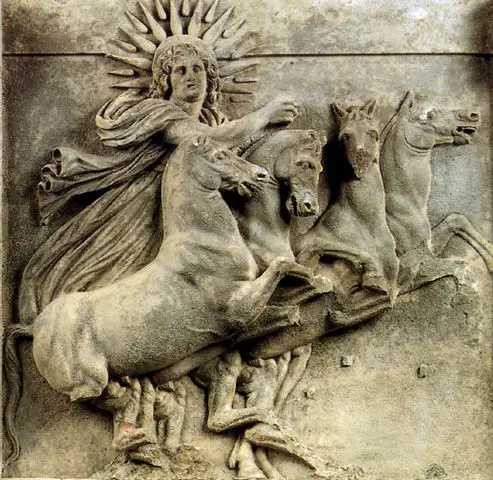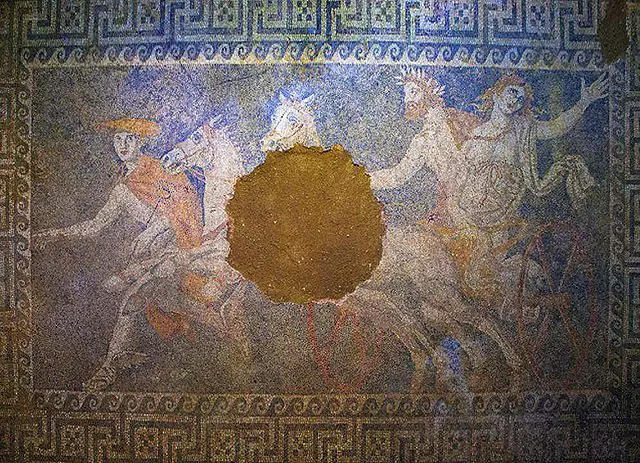| Further Reading | The Reason Sparta Lost The Battle Of Leuctra In 371 BC |
In 490 BC one of the most important battles of the ancient world took place. This was the Battle of Marathon where 10,000 Greeks fought back close to 100,000 Persians. Contrary to popular belief Sparta did not fight at the Battle of Marathon for one major reason.
Historians know of one major reason why the Spartan’s did not fight at the Battle of Marathon. When Athens sent a messenger to Sparta to request the aid of a Spartan army, Sparta was engaged in their yearly religious festival of Carneia. Spartan law dictated that during this festival no army would be fielded until after the full moon.
Thus Sparta gave the reason for religious adherence for not helping the Athenians during the Battle of Marathon. However, recently historians have suspected ulterior motives for the Spartan’s not sending aid to their major Greek rival.
Here at The History Ace I strive to publish the best history articles on the internet. If at the end you enjoyed this article then consider subscribing to the free newsletter and sharing around the web.
Without further ado, here is the reason why Sparta did not fight at the Battle of Marathon.
The Spartan Religious Festival Of Carneia
In classical Sparta there was one religious festival that was more important than all others. This was the religious festival of Carneia which was one of the few that could pause a Sparta military campaign.
The entire Doric race of Greeks celebrated the Carneia festival. This yearly festival was dedicated to a forgotten Doric god who was in charge of providing for a good harvest.
Spartan society was based around farming. It was believed by the ancient Spartans that their entire city-state was built upon good harvests. As such every year in August Sparta would cease all military operations to undertake a month-long harvest festival.
The Carneia festival itself was designed to remind the Spartans of their nomadic life before settling in Sparta. Across the city nine tents were erected with nine citizens in each tent. The rest of the Spartan citizens would travel from tent to tent drinking and eating to celebrate a good harvest and finally finding a home.
Historians know of this ancient festival from the later work of the Roman traveler/historian Strabo who in book 13 of his Geographica discusses the ritual.
It was the ritual of Carneia which prevented the Spartan’s from attending the Battle of Marathon. According to Herodotus’s Histories Athens sent a runner named Philippides who ran over 150 miles in a single day to Sparta. The Spartan king told the Athenian runner that they would not send aid until after the full moon had passed.
The Other Possible Reason Why Sparta Did Not Fight At The Battle Of Marathon
Recently historians have begun to present arguments for other reasons why Sparta did not fight at The Battle of Marathon.
The main theory is that Sparta was hoping that Athens would lose the battle so that it would weaken their hold on the east of Greece. By the time of the Battle of Marathon the Greek world was dominated by two powers; Sparta and Athens.
Sparta controlled the mainland of the Peloponnese peninsula and had client states as far as Thebes in the north. The reason for this dominance came from a series of successful wars which started in 650 BC. However, by the time of the Battle of Marathon there was a rising challenger to Spartan dominance, Athens.
It was probably likely that Sparta did not want to interfere with a conflict between Athens and Persia. This was for two reasons. First, Athens started the Ionian revolt which had attempted to free cities from Persian rule in modern Turkey. Persia attacking Athens was not Sparta’s problem.
The second probable reason why Sparta did not aid Athens in the Battle of Marathon was because Persia was going to eliminate a Spartan rival in Greece. It is important to remember that during the time period of classical Greece there was not a sense of national unity of Greeks outside of a quasi-unified religion.
The reason that both of these theories bear some merit is because during the same time period of the Battle of Marathon Sparta had broken their sacred festival of Carnei to field an army. 10 years after the Battle of Marathon Sparta would break the festival of Carnei to send King Leonidas and 300 Spartans to defend the mountain pass of Thermopylae against the Persian king Xerxes I.
As such there exists another reason why Sparta chose not to fight at the Battle of Marathon in 490 BC. It was to use the Persians to help lessen or eliminate the rising power of Athens.
Conclusion
There you have it; an entire article dedicated to the reason why Sparta did not fight at the Battle of Marathon.
While ancient historians give the reason for adherence to religious festivals for Sparta not fighting there exist other reasons that Sparta did not march to the aid of Athens. Any prospective graduate student looking for a great research thesis will find substantial opportunities researching Spartan politics during the 5th century BC.
Here at The History Ace I strive to publish the best history articles on the internet. If you enjoyed this article then consider subscribing to the newsletter and sharing around the web.
Further, you can check out some of the other articles below.
-
How The American Revolution Changed The World

Here is how the American Revolution changed the world. Many people are not aware of just how important this event actually was.
-
Why The Roman People Loved Chariot Racing

Why did the Roman people love chariot racing? Well it all comes down to these 3 reasons.
-
The Design and Color of Roman Chariots

What was the design and color of Roman Chariots? Were they faster or slower then normal chariots? Well here is everything!
Sincerely,
Nick